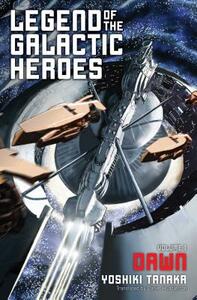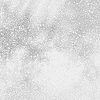Take a photo of a barcode or cover
Man.
I grew up as the occasional anime viewer. I was a dork, but not a superdork, basically. About two years ago now a friend of mine recommended this series to me. Not only did he recommend it, but he insisted on me watching it. So I did. I'm not sure that even he knew the profound impact that it would have on me.
Fast forward to now and the novels that the series was based off of are finally being translated into English and released to the public. When I found that out I purchased this and devoured it as quickly as I could. I've been immersed in contemporary science fiction for the past two years now and I've mostly found myself in the land of malaise more than being excited about what's out there. Reading this was just a reminder of what great science fiction can really do to a reader.
While I'm already intimately aware of the story, characters and lore of LoGH, reading the novel was a treat. The narrative style and point of views featured throughout the novel added depth and interest to one of the deepest, most interesting series that I can think of. Since this was a translation it's difficult to really hyper-analyze the prose itself, although it was punchy and kept the tone that fans will recognize from the show. That means that the narrator keeps a rather dry, historical perspective on events, but when it shifts to the point of view of the characters everything felt weighty and substantive.
The way that this series handles a rather objective view or humanity, society, governmental systems and the whole concept of "good" or "bad" is really without peer. Yes, it's a series about war, but it shows both sides and endears the reader/viewer to characters on both sides of the story, instead of looking to say who is bad and good. The whole thing works because of just how strong these characters are, too.
This isn't an overly-complicated piece of literature when it comes to language or science, which tends to be what trends heavily for science fiction these days, but the story and the characters are just so marvelously done that it's impossible not to recommend this book. If somehow you haven't seen the series (which doesn't seem like a stretch), I implore you to check out this book.
I grew up as the occasional anime viewer. I was a dork, but not a superdork, basically. About two years ago now a friend of mine recommended this series to me. Not only did he recommend it, but he insisted on me watching it. So I did. I'm not sure that even he knew the profound impact that it would have on me.
Fast forward to now and the novels that the series was based off of are finally being translated into English and released to the public. When I found that out I purchased this and devoured it as quickly as I could. I've been immersed in contemporary science fiction for the past two years now and I've mostly found myself in the land of malaise more than being excited about what's out there. Reading this was just a reminder of what great science fiction can really do to a reader.
While I'm already intimately aware of the story, characters and lore of LoGH, reading the novel was a treat. The narrative style and point of views featured throughout the novel added depth and interest to one of the deepest, most interesting series that I can think of. Since this was a translation it's difficult to really hyper-analyze the prose itself, although it was punchy and kept the tone that fans will recognize from the show. That means that the narrator keeps a rather dry, historical perspective on events, but when it shifts to the point of view of the characters everything felt weighty and substantive.
The way that this series handles a rather objective view or humanity, society, governmental systems and the whole concept of "good" or "bad" is really without peer. Yes, it's a series about war, but it shows both sides and endears the reader/viewer to characters on both sides of the story, instead of looking to say who is bad and good. The whole thing works because of just how strong these characters are, too.
This isn't an overly-complicated piece of literature when it comes to language or science, which tends to be what trends heavily for science fiction these days, but the story and the characters are just so marvelously done that it's impossible not to recommend this book. If somehow you haven't seen the series (which doesn't seem like a stretch), I implore you to check out this book.
A well written book with a fascinating plot and world building. The plot is never boring and is also and is an interesting critique on different forms of governments.
Awareness of what Yoshiki is trying to do with this series also helps the reader understand why so much science is hand-waved away in favour of describing political and military manoeuvres, with much emphasis placed on the latter. The book has ten chapters, and two of those chapters are dedicated entirely to describing every single little tactical decision made, and their subsequent consequences, in meticulous detail. I suppose Yoshiki does that so the reader may better admire the cleverness of the story’s chief protagonists, but those chapters can feel like an enormous drag, if the reader is looking for more character development or plot movement.
Full review here: link
adventurous
tense
medium-paced
Loveable characters:
Yes
Diverse cast of characters:
Yes
Flaws of characters a main focus:
Yes
the phezzan / religious subplot remains the weakest, weirdest, most inexplicably sus part of this series, but i'm still pretty into all the rest lol



